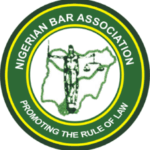Ahamefula v. Guaranty Trust Bank Plc & Ors. – Suit No. FHC/L/CS/244/2015, Dagat J.:
“On the issue of not complying with the Sheriffs and Civil Process Act as regards service outside jurisdiction, generally, the processes to be served outside jurisdiction must have an endorsement on it showing that it is to be served outside jurisdiction in compliance with Section 97 of the Sheriffs and Civil Process Act. The courts have held that where this endorsement is missing the process is voidable and may be set aside on the application of the adverse party. See Odua Investment vs. Talabi (1997) 7 SCNJ 600. Normally, an adverse party need only to file a notice of preliminary objection and take no further step to succeed. However, with the advent of proceedings in lieu of demurrer, the adverse party is forced to file his counter affidavit and other processes. I must state that the 5th Respondent is entitled to petition the court to set aside the service on him, however, this would defeat the objectives of the Fundamental Rights Enforcement Procedure Rules, 2009 which are special proceedings and which seek to do substantial justice. Kindly see the preamble to the Fundamental Rights Enforcement Procedure Rules, 2009. In the interest of justice, I hold that the processes served on the 5th Respondent is proper.”
Blogger’s Note:
The above statement of the law is as contained in the Judgment of Hon. Justice J. K. Dagat of the Federal High Court, Lagos Division, delivered on 28th day of March, 2017.
I agree with the conclusion of the learned Judge that the technicality associated with the mandatory provisions of Section 97 of the Sheriffs and Civil Process Act should be relaxed in fundamental rights suit in view of the overriding objectives of the Fundamental Rights Enforcement Procedure Rules, 2009 (FREPR).
It is worthy of note that in the case of Idehen & Ors. v. Police Service Commission & Ors. Suit No. B/11M/2016, Okeaya-Inneh J. of the High Court of Edo State, Benin Division, in a Judgment delivered on 13 July, 2016, held otherwise. The learned Judge relied on the Court of Appeal case of Ngige v. Awuchukwu [2005] 2 NWLR (Pt. 909) 123 at 143 where Ogebe, JCA held that Section 97 of the Sheriffs and Civil Process Act was applicable in fundamental rights cases as the Fundamental Rights Enforcement Procedure Rules did not make provisions for mode of service.
Ngige v. Awuchukwu supra was decided under the 1979 FREPR, before the coming of the 2009 FREPR. This latter Rule made a lot of improvement especially as regards the overriding objectives stated in the Preamble. Thus, the reasoning of Dagat J. in relaxing the strictness of Section 97 of the Sheriffs and Civil Process Act is commendable. It is in line with what the Supreme Court said in the case of Abacha v. Fawehinmi [2000] 6 NWLR (Pt. 660) 177 at 321, paras. B-D:
“…Today, the courts make less fuss about complaints based solely on adjectival law that tend only to impede the attainment of justice. I am encouraged to so hold by the maxim, ubi jus, ibi remedium (where there is a right there is a remedy). Besides, before the Fundamental Rights (Enforcement Procedure) Rules were prepared, complaints of abuse of fundamental rights under the Constitution were appropriately dealt with, and were not allowed to be defeated by technical submissions of absence of formal procedural rules.”















